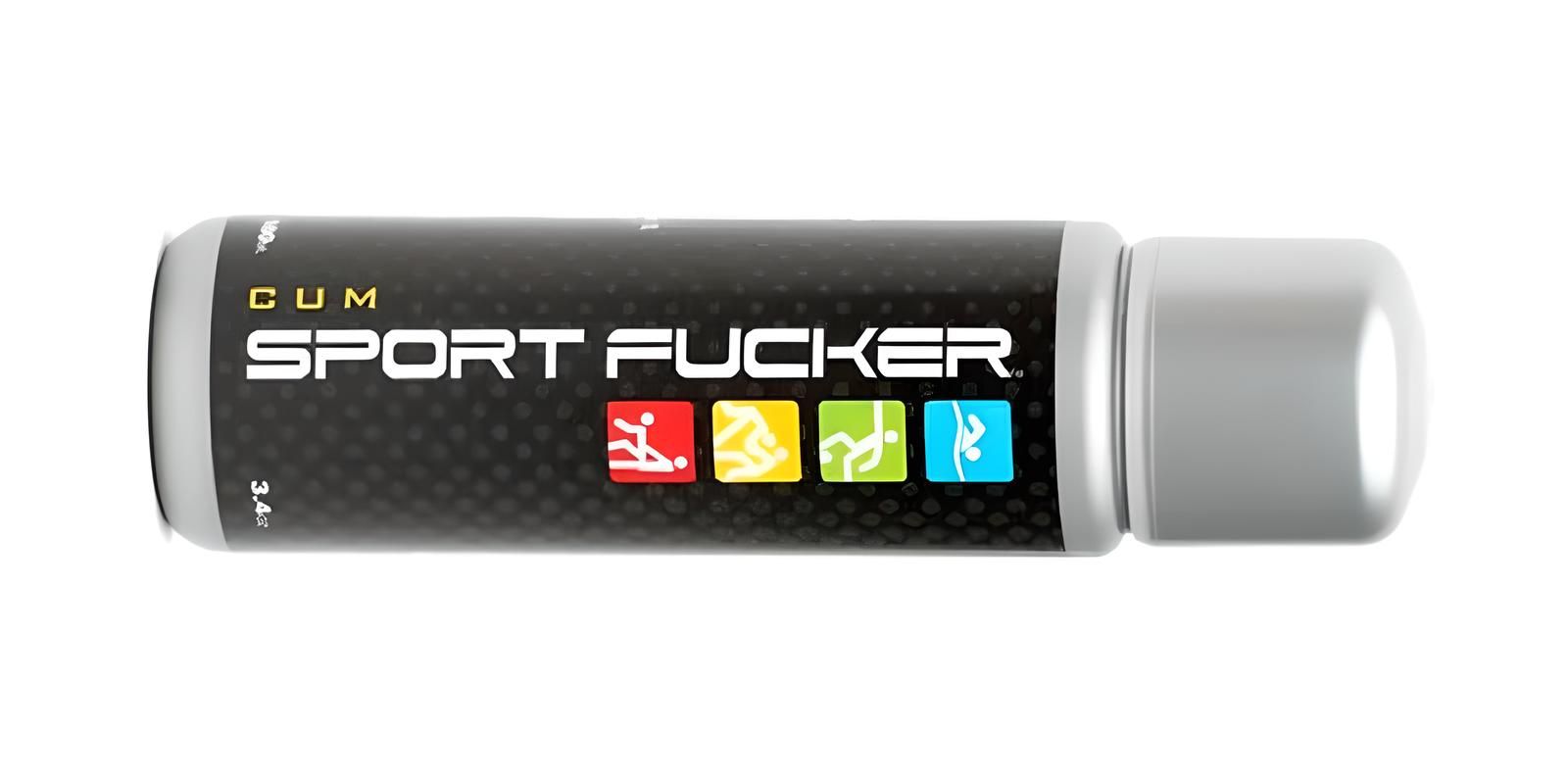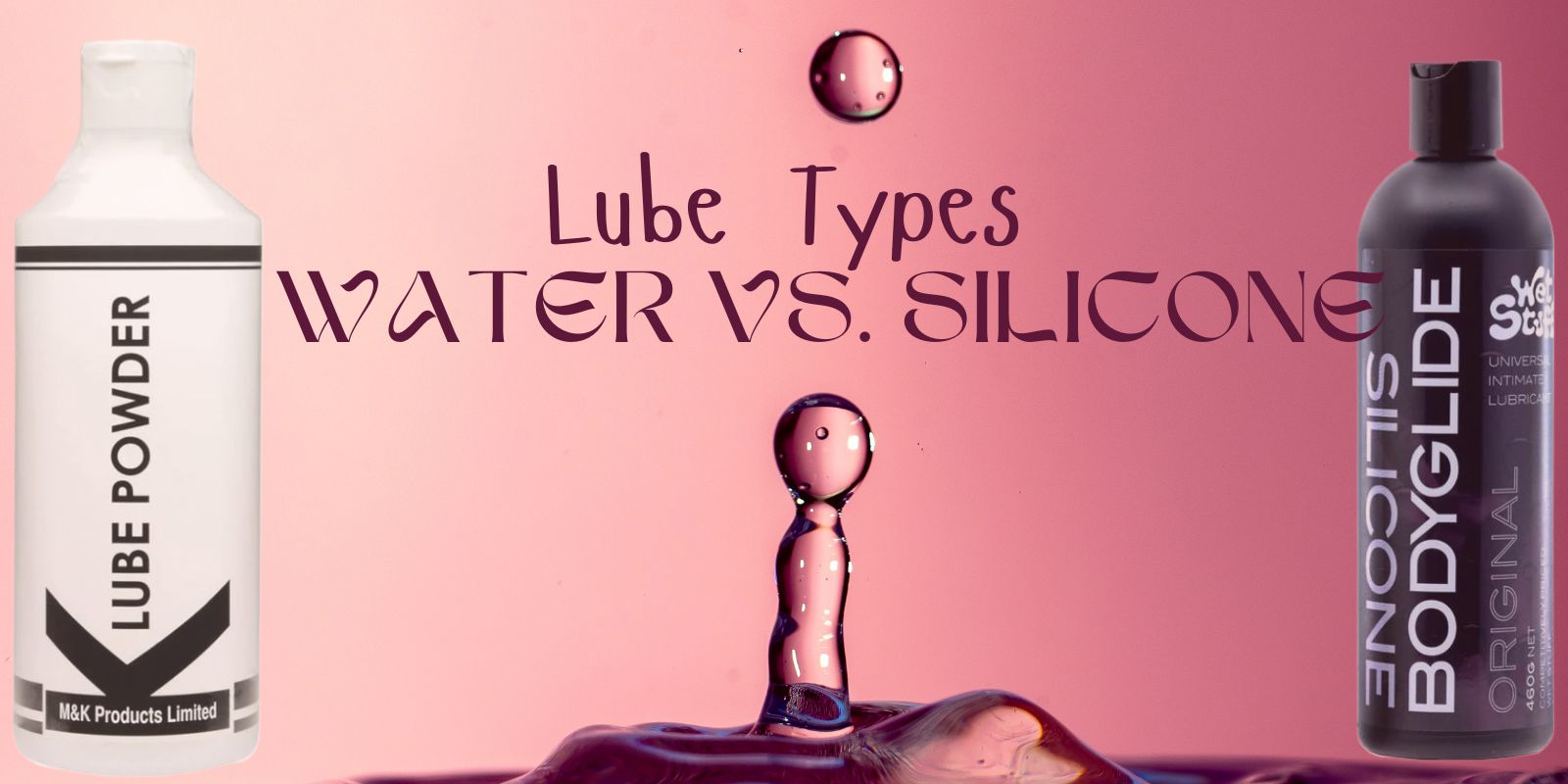What You Need to Know About Water vs. Silicone Lube
Key Takeaway: What’s the difference between water-based and silicone lube?
Water-based lube, like Sport Fucker Cum Lube, is versatile, toy-safe, and easy to clean, ideal for quick sessions. Silicone lube, such as Swiss Navy Silicone, lasts longer, excels in water play, but isn’t safe with silicone toys. Choose based on your needs and toy compatibility.
Choosing the right lube can turn a good time into a great one, but it’s not always clear which type suits which moment. The Water vs. Silicone Lube question comes up often. If you’ve ever found yourself staring at two nearly identical bottles, one water based and one silicone, you’re not alone. Understanding how these lubes perform can help you feel more confident, comfortable, and connected, no matter what kind of fun you’re planning.
The truth is, not all lubes are created equal. Each has its strengths and quirks depending on how you’re using them, who you’re using them with, and what toys or protection you’re pairing them with. In this article, we’ll break down everything you need to know so you can find the best lubes your body, your toys, and your experiences. From everyday use to those long, splashy sessions, we’ve got you covered.
By the time you’re done reading, you’ll know exactly when to reach for water based, when silicone is the smarter pick, and how to make both work for you. The conversation around Water vs. Silicone Lube doesn’t need to be confusing—it just needs the right info.
Table of Contents – Water vs. Silicone Lube
- What Makes Water-Based Lube a Popular Choice
- When Silicone Lube Takes the Lead
- Real World Comparisons That Actually Matter
- Picking the One That Works for You
- Two Toy Pairings That Actually Work
- Get the Most Out of Your Lube With These Smart Tips
- Why It’s Not Just About Slippery vs Sticky
- Good Questions, Real Answers
What Makes Water-Based Lube a Popular Choice
Water-based lube is often the go-to option for people who want something simple, safe, and easy to clean. It has a light texture that mimics natural lubrication, which makes it ideal for a broad range of activities. Whether you’re using it for solo play, partnered fun, or with toys, it offers a familiar feel that most bodies respond to well. Since it’s made primarily from water, it’s also safe to use with all types of condoms and sex toys.
One of the biggest benefits of water-based lube is how versatile it is. You can use it with silicone, glass, or metal toys without any risk of damage. Cleanup is also quick—just a bit of warm water and soap does the trick. Many formulas are gentle and suitable for sensitive skin, though it’s still a good idea to check for additives like glycerin or parabens if you’re prone to irritation.
It’s worth noting that water-based lube doesn’t last as long as silicone. Because it absorbs into the skin or evaporates during use, you might need to reapply more often, especially during longer sessions or if you’re getting wet. Still, it remains a solid, reliable choice for most users.
If you’re weighing up Water vs. Silicone Lube, water-based options are often seen as the everyday workhorse—affordable, compatible, and widely available. For many, it’s the perfect place to start.
When Silicone Lube Takes the Lead – Water vs. Silicone Lube
Silicone-based lube is the go-to choice when you need something that lasts longer and feels smoother. Unlike water-based versions, silicone lube doesn’t absorb into the skin or evaporate quickly. That makes it perfect for drawn-out sessions, extended foreplay, or situations where you don’t want to pause and reapply. It holds up under friction and keeps its glide, even during water-based activities like shower or bath play.
The texture of silicone lube is silkier and thicker, which some users find more pleasurable. It creates a luxurious sensation that can make everything feel a little more intense. Because it’s not water soluble, it also works well in wet environments where water-based lubes might break down or wash away. This makes it a favourite for poolside fun or spontaneous bathroom adventures.
There are a couple of things to keep in mind. Silicone lube can degrade silicone-based toys, so it’s best to check compatibility or do a patch test. It can also be a little harder to clean off skin or sheets, though many find the trade-off is worth it for the added durability. A little goes a long way, so even though it may cost more upfront, it lasts longer per use.
In the comparison of Water vs. Silicone Lube, silicone wins hands-down for longevity and performance during water-based play. It’s an ideal companion for those who want something that stays slick without constant maintenance.
Real World Comparisons That Actually Matter
When comparing lubes, it’s not just about ingredients. It’s about how they hold up in the moments that matter. If you’re going for a quick, no-fuss session with a toy, water-based lube often fits the bill. It’s lightweight, easy to clean up, and gets the job done. But if you’re planning a marathon session or something wetter—like shower fun or poolside play—silicone-based lube holds the edge by staying slick longer, even when things get steamy.
Compatibility is another big factor. Water-based lubes are safe to use with any kind of toy or condom. You can switch between a glass toy and a latex condom without a second thought. Silicone lube, while excellent for skin-on-skin, isn’t suitable for most silicone toys unless explicitly labelled. That can be a dealbreaker for those with a toy drawer full of silicone favourites. Cleanup also plays a role—water-based wipes off with ease, while silicone may need more effort and soap.
When it comes to the feel of the lube, preference plays a big part. Some people love the silky thickness of silicone, while others prefer the natural glide of water-based. The right choice depends on what kind of experience you’re chasing. Water vs. Silicone Lube isn’t about picking a winner—it’s about choosing the one that fits the moment best.
Picking the One That Works for You
Choosing the right lube really comes down to what you need it for and how you like things to feel. If you’re using toys made of silicone or if you want something that’s easy to clean up afterward, water-based lube is a reliable choice. It’s gentle on the body, works with condoms, and won’t damage your favourite toys. For quick sessions or casual use, it ticks every box without overcomplicating things.
On the flip side, silicone lube is perfect for when time is on your side or when water’s involved. It won’t wash away in the shower, and it holds up during extended play. It also has a slick, velvety texture that some users find more stimulating. That makes it ideal for longer encounters or anything that involves skin-on-skin contact for more than a few minutes.
Cost might also be part of your decision. Water-based lubes are generally more affordable, but silicone lubes last longer with less product per use. That means your bottle could go further, even if it costs a little more at the start. It’s worth thinking about how often you use lube and in what settings to decide which makes more sense.
In the Water vs. Silicone Lube debate, there’s no single right answer. Many people keep both on hand so they’re ready for any situation. The best lube is the one that fits your moment, your body, and your plans.
Two Toy Pairings That Actually Work
Swiss Navy Silicone Lubricant
This product is all about endurance. The Swiss Navy Silicone Lubricant brings a smooth, concentrated glide that sticks around when things heat up. It’s a strong match for body-to-body contact and long, uninterrupted sessions where constant reapplication is a buzzkill. Just avoid pairing it with silicone toys to prevent damage. This is where it really shines—on skin, in water, and in situations where staying slick matters most.

Sport Fucker Cum Lube
The Sport Fucker Cum Lube is a water-based option that mimics the look and feel of natural fluids, giving it extra appeal for realism lovers. It’s compatible with all toys, making it a strong pick for sessions that include silicone, metal, or glass products. Cleanup is fast and fuss-free, and its texture adds a visual element that enhances the experience. In the Water vs. Silicone Lube conversation, this one proves water-based doesn’t have to mean basic.

Get the Most Out of Your Lube With These Smart Tips
Good lube is only as effective as how you use and store it. For starters, always read the ingredient list—especially if you’re prone to irritation. Some water-based lubes contain glycerin or parabens that can cause discomfort for sensitive users. If you’re unsure, do a quick patch test on your wrist or inner thigh before going all in. You could even look at creating your own homemade lube too.
When it comes to toys, compatibility is everything. Water-based lubes are safe across the board, but silicone-based options should never be used with silicone toys unless stated otherwise. To check, apply a small dab to the base of the toy and leave it for a few hours. If there’s no tackiness or damage, it’s likely fine. Otherwise, stick with water-based to keep your toys in top condition.
Storage also matters. Keep your lube in a cool, dry spot, and always close the cap tightly after use. Over time, ingredients can separate or lose their effectiveness. For water-based lubes especially, using clean hands or a pump dispenser can prevent bacteria from getting inside. If you’re comparing Water vs. Silicone Lube on shelf life alone, silicone generally stays usable a bit longer—but both last well when stored properly.
Why It’s Not Just About Slippery vs Sticky
Lube isn’t just a bonus—it’s often the difference between average and amazing. The right one adds comfort, reduces friction, and makes everything feel better. But picking it shouldn’t be a guessing game. Understanding the real-world uses of each type helps take the stress out of choosing and puts the focus back where it belongs—on enjoying yourself.
If you’re someone who regularly switches between partners, positions, or toys, a reliable water-based lube can simplify things. It’s easy to rinse off, works with every material, and doesn’t stain. For more involved sessions or water play, silicone lube holds up like a champ. You don’t need to pick a side permanently—it’s completely fine to mix and match based on the moment.
Some people prefer the natural feel of water-based, while others lean toward the ultra-slick glide of silicone. There’s no right or wrong—just what feels right for you. That’s why many seasoned users keep both options nearby and let the night decide. It’s a small tweak with a big impact.
So when you’re thinking about Water vs. Silicone Lube, don’t overthink it. Go with what feels good, suits your setting, and keeps you coming back for more. Comfort and connection are what count most.
Good Questions, Real Answers – Water vs. Silicone Lube
Can I use silicone lube with all condoms?
Yes, silicone lube is safe to use with latex, polyurethane, and polyisoprene condoms. It won’t weaken the material, which means you’ll stay protected. Just remember, it’s not compatible with all sex toys, especially those made of silicone. Always double-check packaging or do a quick test before use.
Why does water-based lube dry out so quickly?
Water-based lubes are absorbed by the skin or evaporate over time. This makes them feel more natural but also means they don’t last as long during extended sessions. A quick reapplication or a splash of water can bring them back to life without starting over completely.
How do I know if lube is toy safe?
Look for labels that specify toy safety, especially if you’re using silicone toys. Water-based lubes are usually a safe bet for all materials. If you’re unsure, do a patch test on a hidden part of the toy and check for changes in texture or finish after a few hours.
Does personal lubricant have an expiry date?
Yes, most lubes have a shelf life of two to three years. Check the packaging for a printed date. Expired lube might lose effectiveness, change consistency, or become irritating. For longer-lasting freshness, store it in a cool, dry place and avoid touching the bottle with dirty hands.
Can I mix silicone and water-based lubes?
It’s possible, but not always ideal. Mixing the two might reduce the performance of each. If you try it, start with a small amount and see how it feels. Keep in mind that combining lubes may still affect toy materials, especially silicone ones, so caution is key.
When comparing Water vs. Silicone Lube, even small questions like these can help shape a better, more confident choice. Knowing what works and what doesn’t makes every session smoother.
Benjamin Higgins is a male escort and writer sharing real advice on sex, relationships, and intimacy—helping men become better lovers and partners.


Leave a Reply